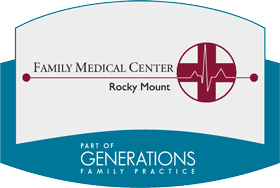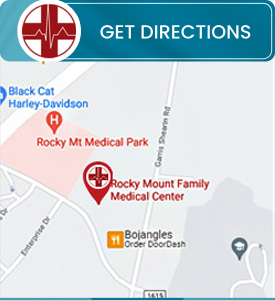Whooping Cough Treatment in Rocky Mount, NC
If you are noticing signs of a persistent and consistent cough, and your face turns red or blue while coughing, you might be experiencing a whooping cough. The early symptoms of whooping cough, such as runny nose, sore throat, coughing, watery eyes, and mild fever, are similar to the usual cough. However, after a week or two, you might experience rapid and violent coughing fits. If you are looking for whooping cough treatment, visit our expert team at Rocky Mount Family Medical in Rocky Mount, NC. For more information, contact us or request an appointment! We are conveniently located at 804 English Road, Suite 100 Rocky Mount, NC 27804.


Table of Contents:
How do you know if you have whooping cough?
What are the 3 stages of whooping cough?
Will whooping cough go away by itself?
When to see a doctor for whooping cough?
Symptoms of whooping cough, which is also known as pertussis, typically develop within 5 to 10 days after exposure. The early symptoms can be very similar to those of a common cold, such as a runny nose, mild fever, and a persistent cough. However, as the infection progresses, the cough becomes more severe and can include the characteristic “whoop” sound, which is heard during coughing fits. Coughing fits can last for several weeks or even months. Other symptoms can include vomiting, exhaustion, and difficulty breathing.
As the coughing fits become more severe, it can be difficult for a person to catch their breath, which can lead to a bluish color around the mouth or the face. In extreme cases, the cough can be so severe that it leads to rib fractures or other injuries. To confirm a diagnosis of whooping cough, our doctors may perform a physical examination, look over the patient’s medical history, and order laboratory tests.
Whooping cough is a highly contagious respiratory infection that progresses through three, distinct stages:
● Catarrhal stage – The catarrhal stage is the first stage of the infection, and symptoms are similar to those of a common cold, such as a runny nose, mild fever, and a persistent cough. This stage often lasts for 1 to 2 weeks.
● Paroxysmal stage – The paroxysmal stage is the middle stage of the infection, and symptoms become more severe. The cough becomes more persistent and severe and can include the characteristic “whoop” sound, which is heard during coughing fits. This stage often lasts for 2 to 6 weeks.
● Convalescent stage – The convalescent stage is the final stage of the infection, and symptoms begin to improve. The coughing fits become less frequent and eventually stop altogether. However, some patients still have a persistent cough for several weeks or even months. This stage can last for several weeks to months.
Not all whooping cough patients will experience all three stages, and symptoms can vary widely. Also, while the coughing may persist for several weeks or months, the most contagious stage is during the first stage where the symptoms are mild and similar to the common cold. Reach out to our experts today to learn more about treatment options and our services.
Whooping cough is caused by a bacterial infection, and it will not go away on its own without treatment. The infection can last for several weeks or even months, and symptoms can be severe and debilitating.
See a healthcare provider as soon as possible if you suspect you have whooping cough. Antibiotics can be prescribed to shorten the duration of the infection, reduce the severity of symptoms, and decrease the likelihood of complications. In some cases, antibiotics may also prevent the spread of the infection to others.
It is important to note that even after recovery, immunity against whooping cough may wane, and you can get infected again. Vaccination is the most effective way to protect against whooping cough.
See a healthcare provider as soon as possible if you suspect you have whooping cough. This is particularly important if you have been in contact with someone who has been diagnosed with the infection or if you have symptoms that are consistent with whooping cough. Symptoms of whooping cough can include:
● Runny nose
● Mild fever
● A persistent cough that becomes more severe over time
● Characteristic “whoop” sound during coughing fits
● Vomiting
● Exhaustion
● Difficulty breathing
If you are experiencing any of these symptoms, it’s best to see your doctor as soon as possible. Early diagnosis and treatment can help to shorten the duration of the infection, reduce the severity of symptoms, and decrease the likelihood of complications.
If you are diagnosed with whooping cough, it is important to stay home and avoid contact with others to prevent the spread of the infection. Also, if you have a newborn, an infant, or a pregnant person in your household, it’s essential to seek medical attention as soon as possible, as whooping cough can be life-threatening for these groups. For more information, contact us or request an appointment! We are conveniently located at 804 English Road, Suite 100 Rocky Mount, NC 27804. We serve patients from Rocky Mount NC, Nashville NC, Westry NC, Dortches NC, Red Oak NC, and Sharpsburg NC.

Additional Services You May Need
▸ Ancillary Services
▸ Diabetes Management
▸ Pediatric Care
▸ Family Care
▸ Men’s Health Care
▸ Women’s Health Care
▸ Employer Services
▸ Joint Injections (Cortisone)
▸ Laboratory Services
▸ Hypertension Treatment
▸ Vaccines and Immunizations
▸ Sports Physical Exam
▸ Flu Shots
▸ Dehydration Treatment
▸ Sunburn Treatment
▸ STD Testing



